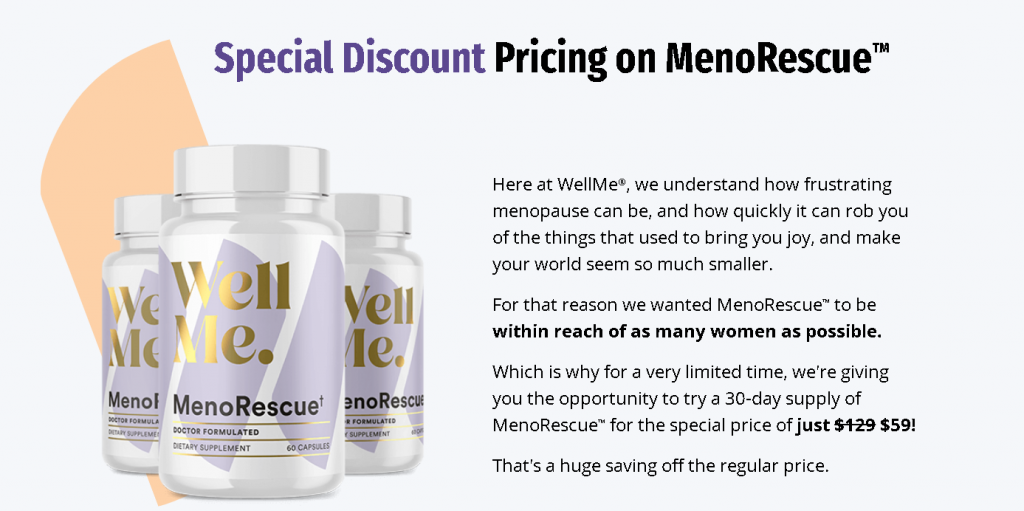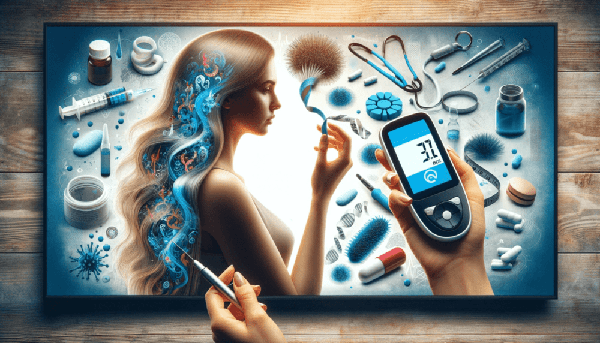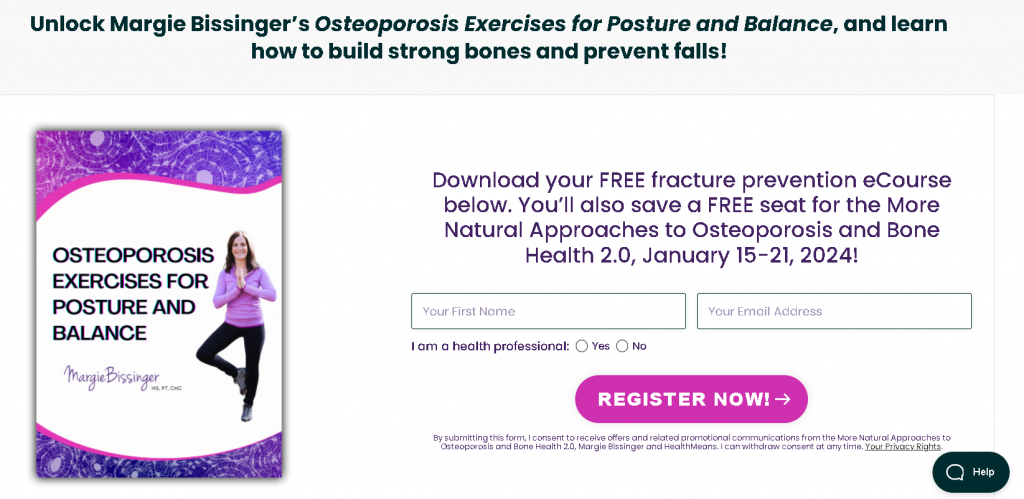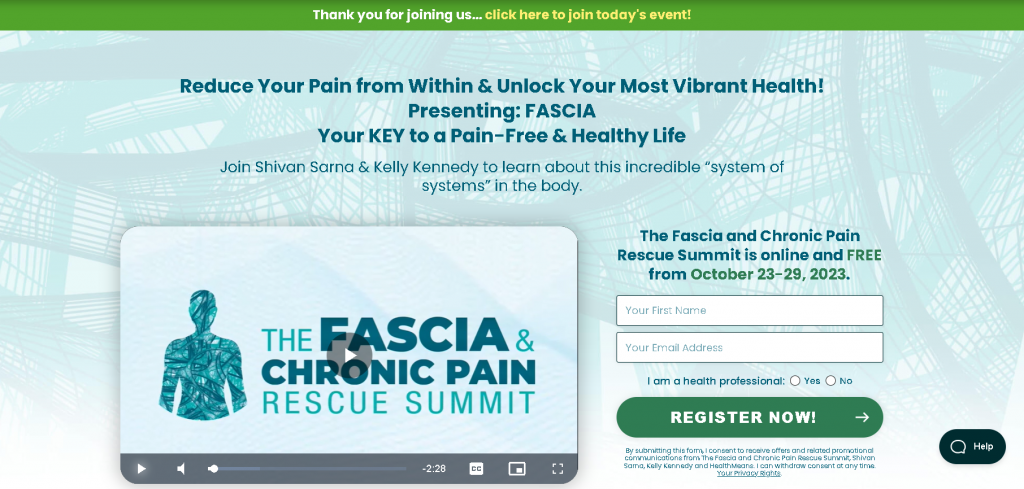Best Foods for Acid Reflux and Heartburn

Whether a ‘burning sensation’ in your chest keeps you awake at night or stops you from enjoying your tea, you’re not alone – 1 in 4 people in the UK regularly deal with the discomfort of acid reflux or heartburn.
In most cases, heartburn is nothing to worry about. It is simply when stomach acid travels back up your throat, which we don’t even notice most of the time. The ‘burning sensation’ can be exacerbated, however, by not elevating your head when lying down, stress or anxiety, and – the main focus of this article – dietary choices.
Read on to find out what foods help acid reflux go away, which heartburn foods to avoid, and some general tips for managing heartburn on a day-to-day basis.
What’s the difference between acid reflux and heartburn?
While acid reflux and heartburn terms are often used interchangeably, they are in fact different things.
An acid reflux refers to stomach acid or stomach contents travelling up towards the throat, whilst heartburn is the feeling of burning sensation in the chest, caused by acid reflux. So, in short, heartburn is a symptom of an acid reflux.
List of foods to eat with acid reflux
1. Low-acid leafy greens
You should look to add these superfoods (think spinach and broccoli) to your diet, where possible.
2. High-fibre foods
Leafy greens are not the only high-fibre foods that help with heartburn – there are a whole host of small swaps you can make to keep those discomforting symptoms at bay.
3. Low-fat, lean proteins
legumes, low-fat dairy, as well as lean meats, fish or plant proteins like tofu or quinoa,
4. Water and water-rich foods
To make sure you’re getting as much hydration as possible, also consider adding these water-rich foods that help with heartburn:
- Cucumbers.
- Watermelons.
- Broth based soups.
- Watercress.
- Peaches.
Foods to avoid with acid reflux
There are plenty of foods that help acid reflux go away – but what about those foods that exacerbate heartburn and cause those burning sensation flare ups?
And while it can vary from person to person, fatty, oily, spicy, and sugary foods are the most common triggers for acid reflux. That’s because they linger longer in your stomach, making it more likely that acid leaks back up to your throat.
Some of the most common heartburn foods to avoid include:
- Coffee and caffeinated tea.
- Alcohol.
- Chocolate.
- Processed food.
- Fizzy drinks.
- Peppermint.
- High acidic fruits.
- Fried foods.
How to manage acid reflux and heartburn
Whether you’re adding foods that help with heartburn or keeping an eye out for those foods to avoid with acid reflux, watching what you eat can go a long way to helping alleviate symptoms.
However, there are also slight lifestyle tweaks you can make to help manage the discomfort of heartburn, including:
- Continue to eat regular meals: While food can be the cause of acid reflux, not eating enough can also contribute to the symptoms. When you let your body go hungry, the acid in your stomach builds up and that can cause a heartburn flare up.
- Eat little and often: Overeating can stop the top of your stomach from closing properly, making it easier for that reflux-causing stomach acid to travel up to your throat. It might be best to opt for the ‘little and often’ approach. If you’ve got a busy work schedule, try packing some small snack-sized boxes, filled with foods for acid reflux, so you can graze as you go.
- Eat at least two hours before bed: Even with foods that help heartburn, eating late at night and then going straight to bed does not give your body a chance to properly digest your meal. Instead, digestion is best aided when the body is in an upright position – sitting or standing – so it’s best to eat 2 to 3 hours before bed.
- Eat a balanced diet: Eating a healthy, balanced diet and getting all the necessary vitamins and nutrients is always beneficial for your physical and mental health. Acid reflux and heartburn is no exception to this.
- Limit alcohol consumption: Not only is alcohol acidic, but it can also relax your low oesophageal sphincter – which causes acid in your stomach to travel back up to your oesophagus. If you’re regularly experiencing heartburn, assess and potentially limit how much alcohol you drink throughout the week.
- Practice stress-relief techniques: Did you know that stress and anxiety are linked to heartburn and acid reflux, causing flare-ups and worsening symptoms? Well, you can minimise this impact by practicing stress-busting techniques or finding ways to deal with anxiety, such as exercising, socialising, and getting enough sleep.
How Does Menopause Cause Hair Loss

Menopause marks a significant period in your life, bringing about several changes. One such change that might be causing you concern is hair loss. Understanding the link between menopause and hair loss is important in finding strategies to manage this issue.
Hormonal Changes
This natural biological process is characterized by three stages: perimenopause, menopause, and postmenopause. During these stages, your body undergoes significant hormonal shifts. Research indicates that these changes, particularly the reduction in estrogen and progesterone levels, play a pivotal role in hair thinning and loss.
Hair growth goes through phases: growth (anagen), rest (telogen), and shedding (exogen). The hormonal upheaval during menopause can disrupt this cycle, shortening the growth phase and extending the shedding phase. This leads to a noticeable decrease in hair density and volume.
Androgen Hormones
Although menopause is synonymous with a decrease in female sex hormones, it also triggers an increase in androgens, a group of male hormones. Androgens, such as testosterone, can shrink hair follicles, exacerbating hair loss on the scalp. The imbalance between reduced estrogen and increased androgens is a key factor contributing to menopausal hair loss.
Estrogen Hormones
Estrogen is crucial for hair growth and the maintenance of the hair life cycle, as it prolongs the growing phase, leading to longer and more voluminous hair. However, during menopause, a significant drop in estrogen levels can affect hair growth and health, causing slower hair growth and thinner strands. Research involving skin cells and animal studies indicates that estrogen not only promotes hair growth but may also help maintain the thickness of the hair strand, highlighting the hormone’s key role in preserving hair health.
Symptoms of Menopausal Hair Loss
Exploring through menopause, you might observe some changes that catch you off guard, particularly when it comes to your hair. Deciphering the signs of menopausal hair loss early on can be a game-changer in how you manage and mitigate its effects. Here’s what you need to keep an eye out for…
Widespread thinning across the scalp is a key sign of menopausal hair loss, marked by a gradual and uniform decrease in hair density leading to reduced volume. Also, increased shedding beyond the normal 50 to 100 strands a day, and noticeable hairs on pillows, shower drains, or hairbrushes, indicate more than normal hair loss. Changes in hair texture towards finer strands contribute to the appearance of thinning and can complicate styling efforts. Lastly, experiencing slower hair growth or weaker regrowth is common due to hormonal changes during menopause.
Can Menopause Hair Loss Be Prevented or Slowed?
The truth is, while you can’t completely stop the biological process, you can certainly take measures to reduce the impact and protect your hair’s health.
Adjust Your Diet: Nutrition plays an important role in hair health. Incorporate a balanced diet rich in proteins, healthy fats, and essential vitamins and minerals. Foods high in omega-3 and omega-6 fatty acids, like fish and flaxseed, can support hair strength and texture. Meanwhile, spinach, eggs, and carrots are great sources of the vitamins and minerals needed for healthy hair growth. Use a supplement such as Menorescue to promote healthy cortisol levels in order to encourage estrogen and progesterone balance.
Gentle Hair Care Practices: The way you assist your hair can either protect it or put it at further risk of damage. Avoid excessive heat styling and harsh chemical treatments. Opt for gentle, sulfate-free shampoos and conditioners that nourish rather than strip your hair. Never underestimate the power of a good, wide-tooth comb for detangling without breakage.
Stress Management: Stress can exacerbate hair loss. Engaging in regular exercise, practicing mindfulness or yoga, and ensuring you’re getting enough sleep are all effective ways to lower stress levels. Remember, a calm mind often leads to a healthier body – and that includes your hair.

Nurturing Wellness: Self-Care Strategies for Preventing Burnout in Healthcare

In the high-pressure environment of healthcare, self-care is often sidelined, yet it is crucial for longevity and effectiveness in this field. From Live Free From Stress this guide aims to offer you practical and essential self-care strategies to help balance your professional and personal life, ensuring you avoid burnout and continue to thrive in your demanding career.
Implement Self-Care Rituals
You must carve out time for activities that replenish your energy. Whether it’s engaging in physical exercise, indulging in your favorite hobbies, or cherishing moments with your family and friends, these activities are not just leisure; they are essential for rejuvenating your spirit and mind. Regularly engaging in these practices helps maintain a healthy equilibrium between your professional duties and personal life, ensuring neither gets neglected.
Mind Your Consumption
Being mindful of your caffeine intake is crucial for maintaining your overall wellbeing, as it can significantly impact your health. Trendy coffee and energy beverages, in particular, often contain high levels of caffeine, which, while providing a temporary boost in energy and alertness, can also exacerbate stress and anxiety levels in some individuals. To ensure you’re consuming a healthy amount, it’s wise to look up the caffeine content of your favorite beverages online. This simple step can help you make informed decisions about what and how much you drink, allowing you to enjoy the benefits of caffeine while minimizing its potential downsides.
Be Assertive and Establish Boundaries
It’s imperative to learn the art of saying “no.” Setting clear boundaries is not selfish; it’s a necessary step in managing your workload and stress levels. By politely but firmly declining additional responsibilities that exceed your capacity, you safeguard your time and energy, preventing the onset of exhaustion and burnout. This assertiveness is a key component in maintaining a healthy work-life balance.
Reassess Your Career Path
Earning a master’s degree online is an excellent strategy for those in a role that’s no longer challenging or for individuals ready for a career change. For instance, the benefits of a Master’s degree in nursing are substantial, offering a range of concentration options such as nurse education, informatics, nurse administration, or advanced practice nursing options. This level of specialization enables you to tailor your career to your interests and goals.
Online degree programs provide the flexibility to work full-time while keeping up with your studies, ensuring that advancing your education enhances your career prospects without sacrificing your current job. This approach to higher education, particularly in nursing, opens doors to leadership roles and specialized fields, significantly enriching your professional life.
Prioritize Mental Health
Acknowledging the need for professional help in managing stress and emotional challenges is a sign of strength. Seeking counseling or therapy is an integral part of self-care, especially in a field as emotionally taxing as healthcare. These services provide a safe space to unpack your thoughts and feelings, offering strategies to cope with the challenges you face, thereby fortifying your mental resilience.
Build a Supportive Network
Building a network with fellow healthcare professionals is invaluable. These connections offer a unique form of support, as they understand the specific pressures and challenges of the medical field. Sharing experiences, advice, and encouragement with peers can provide a sense of community and belonging, which is crucial for emotional well-being in a high-stress environment.
Consider Taking a Rejuvenating Break
Taking a sabbatical offers a valuable chance to step back, providing the rest and rejuvenation you need both physically and mentally. It’s an opportunity for you to reconnect with yourself and delve into interests beyond your professional life. Upon returning, you’ll find yourself re-energized, armed with a new perspective. These breaks can be transformative, often leading to a revitalized outlook on both your career and personal life.
In the healthcare profession, self-care is essential for maintaining both effectiveness and fulfilment in your career. By integrating these self-care strategies, you prioritize your well-being, a critical step in sustaining your dedication to healthcare. Ensuring your own health and happiness allows you to continue delivering high-quality care with passion. Self-care is the bedrock that enables you to care optimally for others. Remember, your ability to provide the best care for others is deeply rooted in how well you take care of yourself.
How to Live Longer: Exercising for Longevity

There is strong evidence for the effectiveness of regular physical activity in the prevention of several chronic diseases. Might it not only help to add life to our years, but years to our life? Is it truly survival of the fittest?
Exercise is so important that not walking an hour a day has been considered a “high-risk” behavior, alongside smoking, drinking excessively, and being obese. Having any one of these high-risk behaviors appears to effectively age us three to five years in terms of risk of dying prematurely. Interestingly, individuals who eat green vegetables on a daily basis do not appear to have that same escalation in risk. But, even if kale-munching couch potatoes do live as long as walkers, there are a multitude of ancillary health benefits to physical activity—so much so that doctors are encouraged to prescribe it to signal to the patient that exercise can be powerful medicine.
Exercise for 20 minutes, and you may add an hour to your life. So, for all those who say they don’t have time to exercise, it’s like a three-to-one return on investment. Give 20 minutes of your life to get 60 minutes of life.
 | Currently, most health and fitness organizations advocate for a minimum of a thousand calories burned from exercise a week, which is like walking an hour a day, five days a week. But seven days a week may be even better in terms of extending one’s lifespan. Learn More |
 | Prolonged daily sitting is associated with a shorter lifespan, even in those who exercise regularly. Standing and treadmill desks are two potential solutions for office workers. Learn More |
 | If the U.S. population collectively exercised enough to shave off just 1 percent from the national body mass index, 2 million cases of diabetes, 1.5 million cases of heart disease and stroke, and a hundred thousand cases of cancer might be prevented. Learn More |
8 stress-busting tips for everyday life

Everyday life has evolved in many ways, and as we continue to adapt to the world around us, this might continue to cause us feelings of stress. Here are some things we can all do to relax and ease the pressure.
1. Be positive
It’s easy to slip into negative thinking when you are stressed and even small problems can cause anxiety. We can all think of situations where a small event tipped us over the edge because we were already overwhelmed by other things. With an effort, though, you can look at it the other way round.
“Try to be ‘glass half full’ instead of ‘half empty’,” says Professor Cary Cooper, an occupational health expert at Lancaster University. He suggests writing a list at the end of each day of all that went well or was enjoyable and taking a moment to consider things for which you should be grateful that you may have forgotten. This is particularly powerful in times of national crisis as it reminds us all to focus on the things that are within our control.
2. Avoid information overload
Over-consumption of the news and social media can have a real detrimental affect on good mental health.
It’s important to stay connected but controlling what you consume while using devices will help to reduce stress and anxiety. Some tactics we suggest are only reading reputable news websites, consuming news just once a day and editing your social media feeds so you’re only following accounts that make you feel positive.
3. Have a cuppa
Something as simple as having a cup of tea can lower your stress level, studies have found. Aside from the comforting effects of a strong, hot brew, scientists at University College London found test subjects who drank black tea four times a day for six weeks had less of the stress hormone cortisol in their bodies. They were able to destress twice as quickly as a control group given a placebo. This is a simple act we can all can do in the current situation to help manage our stress.
4. Hit the sack
Stress is one of the most common causes of sleep disruption, according to Göran Kecklund, associate professor at the Stress Research Institute, Stockholm University. He says stress is part of everyday life and it is normal to experience occasionally disrupted sleep while under pressure.
“The dangerous situation appears when stress is causing chronic sleep disturbances,” he says. “Chronic stress is, in itself, a cause of many diseases, for example, coronary heart disease, and poor sleep is believed to be one of the key mechanisms linking long-lasting stress to severe health problems.”
These include high blood pressure and a compromised immune system. To counteract stress, Professor Kecklund first suggests looking at your work-life balance. “Everybody needs time for recovery and relaxation. The type of activity in itself is probably not important – as long as it is stimulating but not perceived as demanding.”
It’s easy to check emails at night when you’re working from home but we strongly advice you try not to. Work-life balance has never been more important and taking time to switch-off will help when it comes to reducing stress.
5. Make time for you
Take some you time. Allocate one or two nights a week for activities you enjoy. Take up a new hobby, return to an old one, make time to see friends and have ‘date night’ with your partner. Recognise you deserve and need time for yourself.
6. Take a different view
Chris Kresser, a specialist in ancestral health and paleo nutrition, advocates looking at stress positively and reframing your attitude to make it work for you.
He emphasises treating threats like challenges and looking to see if there is a long-term opportunity in something that initially feels stressful.
He also suggests taking a long-term view. “Ask yourself whether what you’re upset about will matter in a month, a year or a decade,” he advises. “Will this event matter? Will you even remember it?”
7. Devote time to helping others
When you feel down, do some good. Donate to charity, offer to help a vulnerable neighbour with groceries or pop something in the food bank box the next time you’re in the supermarket.
“Helping people who are often in situations worse than yours will help you put your problems into perspective,” says Professor Cary Cooper of Lancaster University. “The more you give, the happier and more resilient you feel.”
8. Enjoy the fresh air
That being active is good for us is hardly news. Keeping fit protects us against a whole raft of diseases, but did you know it also helps our mental wellbeing?
Something as simple as going out for a walk can help ease mild depression and minimise anxiety. Physical activity causes chemical changes in the body which help bolster positive feelings. Check out our outdoor fitness ideas to get you started.
5 Simple Ways to Beat Blue Monday
A step-by-by step guide to surviving the January blues.
“Blue Monday” refers to the weird third Monday in January—described as the most depressing day of the year—when people appear the lowest in mood. Apparently, this is due to a combination of post-Christmas blues, cold dark nights, and the arrival of unpaid credit card bills. Alas, this year’s date is Monday 17 January 2022.

Is it real?
There is no real evidence to support this theory. The concept was first publicized as part of a 2005 press release from a holiday company that claimed to have calculated the date using an equation. However, the idea is considered pseudoscience, with its formula derided by scientists as nonsensical.
Now, having said that…
Are my clients generally underwhelmed after the Christmas and New Year holidays? Maybe.
Are they broke and just about hanging on for the next paycheck? Certainly.
Have they defaulted on that rather unrealistic New Year’s resolution? Perhaps.
Do they get stressed and overwhelmed by the return to a job they promised themselves that they’d resign from? Sure.
Whilst it might be tempting to indulge in a national collective “woe-is-me” day, it’s probably more helpful to focus on how to make your life better this year.
There might not be much evidence to support “Blue Monday,” but we could probably agree that some people might feel particularly low in mood this week, so let’s be compassionate and offer support to them as we would any other day of the week.
So, if you happen to experience the blues on Monday the 18th of January (or frankly, any other day of the week, for that matter), I invite you to try any or all of my top things to do when I need to beat the blue out of any bluey day! My clients love these, too.
Try any or all of my top things to do when I need to beat the blue out of any bluey day.
5 Simple Ways To Beat Your Monday Blues
- Go to bed early on Sunday night. Your body will thank you for it. It’s important to prepare for sleep using a helpful bed-time routine such as having a warm bath and limiting blue lights which often radiate from mobile phones and tablets. If you really have trouble sleeping, I’d recommend you see your physician for some advice. However, to learn more helpful tips about sleep, my favourite specialist is Dr. Michael J. Breus—aka The Sleep Doctor.
- Plan your Monday schedule, as it’ll help you to feel more in control. Remember to incorporate time in your day for a proper lunch. If you find yourself feeling stressed, take a quick 5-minute break to practice being mindful. Focus on your breathing and allow thoughts to float in and out.
- Meet a friend online and have a good laugh! Or organize a zoom meeting with a number of friends—better yet, friends you haven’t caught up with for a while, and have a really good laugh about all the silly stuff that happened in the past.
- Burn some energy. Go out for a run, cycle ride, or walk until you feel just a little bit better. The endorphins our body produces are our natural anti-depressants and will help boost your moods.
- Don’t pressure yourself. If you don’t fancy doing any of these, then don’t do it! Do something instead that you’d actually enjoy. There’s always Tuesday. It might be a much better day anyway!
How Essential Oils Can Support the Body in Stress
Understanding what actually triggers a stress response gave me the tools to help reduce it.
For example, nipping the thoughts that stir a stress response in the bud can help avoid it altogether. Essential oils are uniquely suited to help us address, transform and clear negative emotions and thought patterns.
Our sense of smell, which is part of our olfactory system, is one of the most powerful channels into the body. In fact, our sense of smell is estimated to be 10,000 times more acute than our other senses. Research has shown that scents can travel faster to the brain than other senses like sight or sound. Perhaps for that reason, inhalation can be the most direct and effective method for using essential oils. The entire process from the initial inhalation of an essential oil to a corresponding response in the body can happen in a matter of seconds.
When we inhale essential oils through the nose, the odor molecules trigger receptor sites in our mucous membrane, which then sends the odor information on to the olfactory bulb at the base of the brain. I find it interesting that it is not actually the essential oil itself that is sent to the brain, but a neural translation of the oils. These fragrance messages are interpreted and transmitted to the limbic system of the brain, known as the “emotional brain” because it deals with emotional and psychological responses.
As you may know, the limbic system serves as the control center in the brain for emotions and feelings, along with hunger, thirst and sex drive. This helps explain how scent can influence appetite and sexual attraction. It also impacts long-term memory through our hippocampus which stores our memories. The hippocampus is the area of the brain at play during those powerful experiences of smell triggering emotions or memories. For me, the mere smell of mothballs transports me back in time to my grandparent’s apartment in Brooklyn, triggering a multi-sensory memory including both the visuals and the emotions that I experienced during our annual visits.
This powerful emotional reaction in the limbic system is triggered by nerve impulses which in turn trigger other areas of the brain that are responsible for secreting hormones, neurotransmitters and regulating body functions. For example, the pituitary gland releases endorphins, which can help alleviate pain and promote a sense of well-being.
The theory of how this works centers on the idea that essential oils can stimulate or sedate the brain to promote or inhibit the production and release of various neurotransmitters which then impact the nervous system.
Because smells can bypass the thought center of the thalamus and connect directly to the emotional center of the brain, known as the amygdala in the limbic system, they can trigger us to react first and think later. All other physical senses are routed through the thalamus, which acts as the switchboard for the brain, passing stimuli onto the cerebral cortex (the conscious thought center) and other parts of the brain.
The amygdala plays a major role in storing and releasing emotional trauma. The easiest way to stimulate this gland is through the sense of smell. In other words – the emotional brain responds better to smell than it does to words that are read, spoken or heard. Our sense of smell links directly to emotional states and behaviors often stored since childhood.
This makes essential oils especially powerful tools for enabling us to access stored or forgotten memories and suppressed emotions, like anxiety, depression, fear, worry, grief, trauma, anger and self-abuse. Once accessed, we can acknowledge and release them. The word “emotion” includes the word motion, implying that are supposed to move through us and be released. Negative emotions can that we hold onto can contribute to health problems.
As you may recall, emotions and thought patterns can trigger an ongoing stress response in the body (since our stress response cannot differentiate between physical or emotional and thought driven stressors) which impedes our ability to heal. Smelling essential oils can be a powerful tool for moving through and releasing these thought patterns. To learn more about different essential oil blends to help release emotions, click here.
Essential Oils as Tools to Relieve Stress
Armed with this knowledge that I could use essential oils to help balance my stress, and not need to abandon my job or my children, I incorporated several emotional blends (my personal favorites are Liver Support™ for my anger and Small Intestine Support™ for my boundaries), along with:
Parasympathetic™: The first line of defense against stress is known as the “fight or flight” response triggered by the sympathetic nervous system. We are designed to switch into this sympathetic state, flee from danger, then drop back into the balanced parasympathetic “rest and digest” state where we can rest, repair and heal. To help stimulate the Parasympathetic response, apply Vibrant Blue Oils Parasympathetic™ blend to the vagal nerve (behind the earlobe on the mastoid bone). For more aggressive vagal stimulation, you can also apply at the base of the skull (where you feel a small indent). Apply before meals to optimize digestion and up to 6 times daily to help reset the body into the Parasympathetic state.
Adrenal™: The adrenal glands help determine and regulate the body’s stress response by secreting hormones like adrenaline and cortisol. Prolonged periods of stress can deplete our reserves of these hormones and exhaust the adrenal glands. Applying Vibrant Blue Oils Adrenal™ blend over the adrenal glands (back of the body, one fist up from the 12th rib), may help to increase the body’s ability to adapt to stress and maintain healthy adrenal function.
Hypothalamus™: The limbic lobe can also directly activate the hypothalamus – a pearl size region of the brain often referred to as the “master gland” which acts as the hormonal control center for neural and hormonal messages received from/sent to body and plays a key role in the body’s stress response. The hypothalamus releases hormones that can affect everything from sex drive to energy levels. The production of growth hormones, sex hormones, thyroid hormones, and neurotransmitters such as serotonin, are all governed by the hypothalamus. It is constantly reading blood the levels of hormones, and adjusting resulting signals sent to the body to maintain internal balance (homeostasis). Chronic and prolonged stress can damage the hypothalamus’s ability to receive clear messages from the body which then impacts all outgoing endocrine and neural signals. Applying Vibrant Blue Oils Hypothalamus™ blend over the third eye may help reset the natural ability of the hypothalamus to send and receive clear messages to and from the body.
What are your tips for beating the Blue Monday blues? Please share in the comments below
Can blood sugar imbalances cause hair loss?
While multiple factors can trigger hair thinning – blood sugar imbalances can be a top contributor.
When you’re experiencing hair loss, it’s essential to consider various factors, and high blood sugar levels could be the culprit behind your thinning hair.
Elevated blood sugar can cause damage to your blood vessels over time, and poor circulation may lead to deprived hair follicles that are unable to sustain normal hair growth.
Hair follicles require a steady supply of blood to maintain growth and health. However, with the impairment caused by high blood sugar levels, your scalp and hair follicles receive less oxygen and vital nutrients they need to thrive. The result is a slower hair growth cycle, leading to brittle hair and eventual shedding.
The Link Between High Blood Sugar and Hair Loss: Inflammation
Chronic, low-grade inflammation can impair the normal hair cycle, disrupting growth and leading to hair loss. Your hair has a defined growth cycle that includes phases of growing, resting, and shedding. This high blood sugar induced inflammation can cause this cycle to accelerate or stall. In particular, the inflammation can damage your hair follicles, where your hair starts its growth. When these follicles are inflamed, they may not produce hair as efficiently, leading to the excessive shedding.
The Negative Effect on the Immune System as Well
When your body is dealing with long-term high blood sugar levels, the immune response can sometimes go into overdrive, which could escalate the inflammation around your hair follicles. And when inflammation is chronic, it doesn’t just stop with hair loss—you could see additional health issues like autoimmune disease, skin problems and a higher sensitivity to infection, which could further exacerbate hair-related concerns.
Remember, various factors influence hair health, and nutrient deficiencies or stress can also lead to hair loss. However, if you find that your hair loss aligns with symptoms of hyperglycemia—like extreme thirst, frequent urination, or blurred vision—it’s a strong indication that diabetes or high blood sugar may be connected to the issue.
The Key is Controlling Blood Sugar Levels
It’s essential to understand how blood sugar levels can play a significant role in hair loss. High blood sugar can interrupt the supply of nutrients and oxygen to your hair follicles, essentially starving the hair of what it needs to grow healthily. Keep in mind that the level of blood sugar control can make a significant difference. Optimal management may help slow down the hair loss process. It’s crucial to monitor your blood sugar closely (and quit eating sugar and simple carbs if that’s your issue) to help maintain a balanced blood sugar level, thus helping mitigate hair loss.
Improving blood sugar management could lead to a noticeable reduction in hair thinning, stimulating the regrowth of your hair. Remember, you’re also proactively taking steps to preserve your hair’s vitality.
Omega-3 cut dementia risk by a third

The largest study of its kind, involving over a quarter of a million people (267,000) from the UK Bio Bank, has reported 30 per cent less risk of dementia in those with a higher omega-3 status in their blood.
One of the study authors, Professor Bill Harris from Stanford University’s Department of Medicine in South Dakota, says “There is now overwhelming evidence from no less than four studies this year that increasing your intake and blood levels of omega-3 is strongly associated with reducing future dementia risk. Ideally a person wants to get their blood omega-3 index above 8%”.
This UK study confirmed the results of a US study earlier this year that found a 49 per cent reduced risk for dementia in those with the highest omega-3 DHA level (top fifth) in their red blood cells versus the lowest (bottom fifth). Oily fish and fish oil supplements contain two kinds of omega-3 fat called DHA and EPA. DHA is the main fat found in brain cells of all animals.
What’s more a meta-analysis of 48 studies in the American Journal of Clinical Nutrition in 2023 also concludes that ‘a moderate-to-high level of evidence suggested that dietary intake of omega-3 fatty acids could lower risk of all-cause dementia or cognitive decline by about 20 per cent, especially for DHA intake’.
A recent study by psychologists at the Linda Loma University in California and published in the journal Brain Sciences, reported that the higher a person’s omega-3 index was in their blood, the more white matter there was in their brain meaning they had more brain volume, and the better they performed on cognitive tests that predict less risk for dementia.





Recent Comments